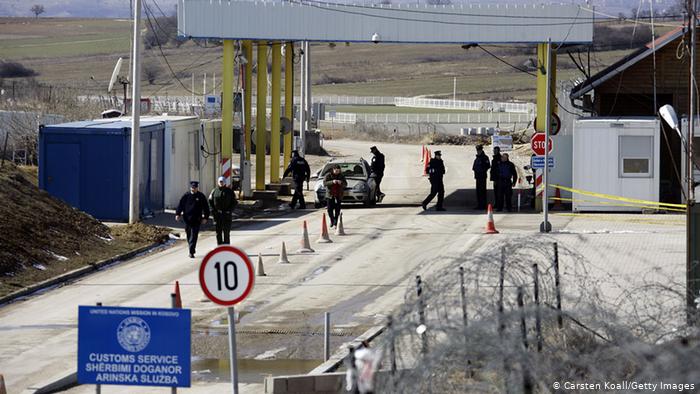
Both Kosovo and Serbia seek to join the European Union. Yet, the long history of conflicts between the territories prevents them from realizing their adhesion, mainly Serbia, which has already adopted constitutional changes required by the EU. from that, the European bloc mediates the discussions between the countries in an attempt to appease the situation.
Kosovo was part of the Serbian Empire in the Middle Ages around the 14th century. Yet, at the end of this century, the Ottoman Empire conquered the Balkans in the Battle of Kosovo in 1389. With its independence from the Ottomans recognized in 1878, the Serbian Kingdom annexed Kosovo to its territory, but both were quickly integrated into Yugoslavia after World War I.. In the decade of 1980, with the disintegration of Yugoslavia, the annexed countries declared themselves independent, inclusive Kosovo, but it was not recognized. However, after the Kosovo War in 1999, the country became an autonomous region under the tutelage of the UN. only in 2008 Kosovo declared itself independent and remains unrecognized by Serbia.
European Union countries, except Spain, Greece, Romania, Slovakia and Cyprus, recognized the independence of Kosovo in 2008 e, ten years ago, the bloc has mediated the dialogue between Belgrade and Pristina, in addition to offering financial help to the last. As a result of this, several agreements were signed between the countries, like the Brussels Agreement (2013). Yet, conflicts between countries continued. In 2017, a Serbian train entered northern Kosovo, where are there Serbian descendants, with the phrase "Kosovo is Serbia" in 21 Languages. Already in 2018, an ethnic Serb politician was murdered in Kosovo. Thus, the EU is still trying to negotiate a treaty to end the confrontation, and the most recent meeting took place on the day 26 April 2021 with the president of serbia, Alexander Vucic, the president of the EU Commission, Ursula Von der Leyen, and the European High Representative, Josep Borrell, for the resumption of the dialogue between Serbia and Kosovo.
In this way, the resolution of the conflict between Belgrade and Pristina remains distant. This because, even with a possible recognition of Kosovo's independence by Serbia, there will still be ethnic clashes, since northern Kosovo has Serb population. In addition, following Matteo Bonomi, researcher at the Institute of International Affairs, “the ambiguity of EU action in the region and partial engagement did not facilitate dialogue. On the contrary, placed the two parts in asymmetrical positions. Kosovo is aware that it ends up being an object rather than one of the subjects of this dialogue.”. from that, there are still obstacles for Kosovo to be considered a state..
Bibliographic references
EU presses Serbia to resume dialogue with Kosovo. Euronews, 26 Apr. 2021. Available inhttps://pt.euronews.com/2021/04/26/ue-pressiona-servia-a-retomar-o-dialogo-com-o-kosovo. Access in 09 May 2021.
CHADWICK, Lauren. A history of tension: Serbia-Kosovo relations explained. Euronews, 15 jul. 2019. Available inhttps://www.euronews.com/2019/05/28/a-history-of-tension-serbia-kosovo-relations-explained. Access in 09 May 2021.
Kosovo PM ends visit to Brussels without promising to return soon. Euronews, 29 Apr. 2021. Available inhttps://pt.euronews.com/2021/04/29/pm-do-kosovo-termina-visita-a-bruxelas-sem-prometer-regressar-em-breve. Access in 09 May 2021.
RUSSELL, Martin. Serbia-Kosovo relations. Confrontation or normalisation? European Parliamentary Research Service, Feb. 2019. Available inhttps://www.europarl.europa.eu/RegData/etudes/BRIE/2019/635512/EPRS_BRI(2019)635512_EN.pdf . Access in 09 May 2021.
Authors: Isabela Paez Halak and Natália Yuri Kitayama
